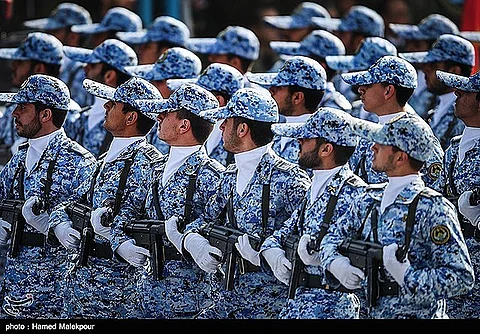

Iran’s Foreign Ministry reiterated Monday that any future negotiations must include holding the U.S. accountable for its June 22 military strikes on Iran’s nuclear facilities, while firmly rejecting direct talks with Washington. Spokesman Esmaeil Baqaei emphasized that compensation for the "military aggression against Iran’s peaceful nuclear facilities" remains non-negotiable, citing international law violations and destruction at Fordo, Isfahan, and Natanz sites. The U.S. dismissed Iran’s demands as "ridiculous," despite UN Charter prohibitions on attacking civilian nuclear infrastructure.
Baqaei reaffirmed Iran’s commitment to the Nuclear Non-Proliferation Treaty (NPT) but condemned the International Atomic Energy Agency’s (IAEA) "politicized and unprofessional approach" in tacitly endorsing the attacks. Following the strikes, Iran suspended IAEA access and demanded legally binding guarantees against future military assaults before resuming cooperation. Supreme Leader Ayatollah Khamenei previously asserted that Iran’s enrichment rights are "inalienable" under the NPT, a stance Foreign Minister Abbas Araghchi echoed, noting Iran paid "in blood and sanctions" for this sovereignty.
The June attacks, initiated by Israel and joined by U.S. B-52 bombers killed 13 nuclear scientists and damaged residential areas, escalating regional tensions. Araghchi warned that Iran views the U.S. as a "participant" in any Israeli aggression, reserving the right to relocate enriched materials and restrict IAEA monitoring for self-defense. Despite U.S. envoy Steve Witkoff’s insistence on "zero enrichment," Iran maintains that its 60% enriched uranium (below weapons-grade) fuels medical reactors, contrasting with Israel’s undeclared nuclear arsenal.
Iran ruled out direct talks, citing U.S. threats of force and sabotage of past agreements. Baqaei noted Washington’s "contradictory positions" undermined trust, referencing Trump’s 2018 withdrawal from the Joint Comprehensive Plan of Action (JCPOA) and subsequent "maximum pressure" sanctions. While European powers threatened "snapback" sanctions, Iran accused them of hypocrisy for supporting Israeli aggression while ignoring JCPOA obligations.
Iran’s Atomic Energy Organization affirmed its nuclear program will "thrive again" despite attacks, emphasizing indigenous technical resilience. With the IAEA’s deputy chief visiting Tehran within days, Iran will permit only technical discussions; no inspections or physical access to sites until accountability is addressed. As Khamenei warned, negotiations remain futile while the U.S. enforces "outrageous" red lines.